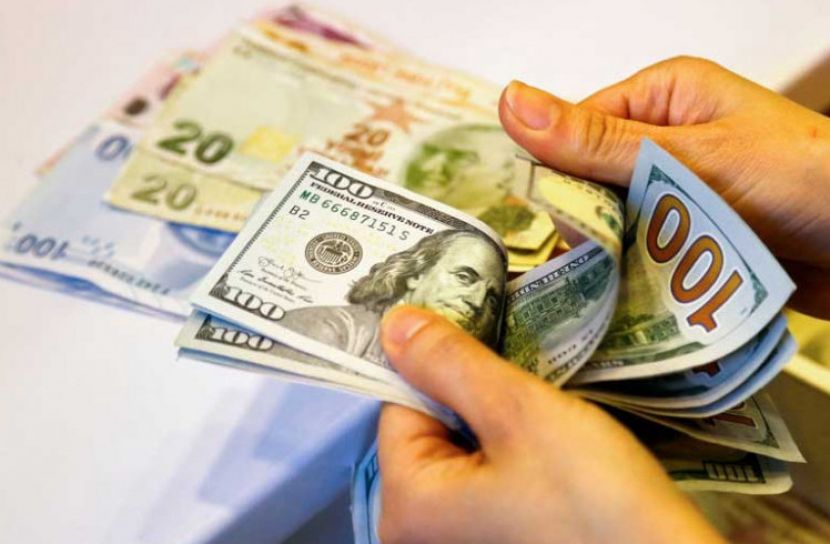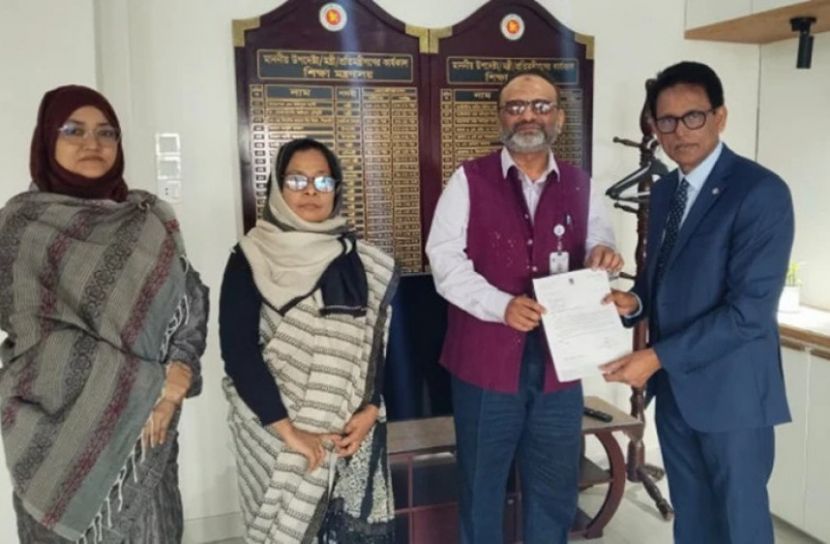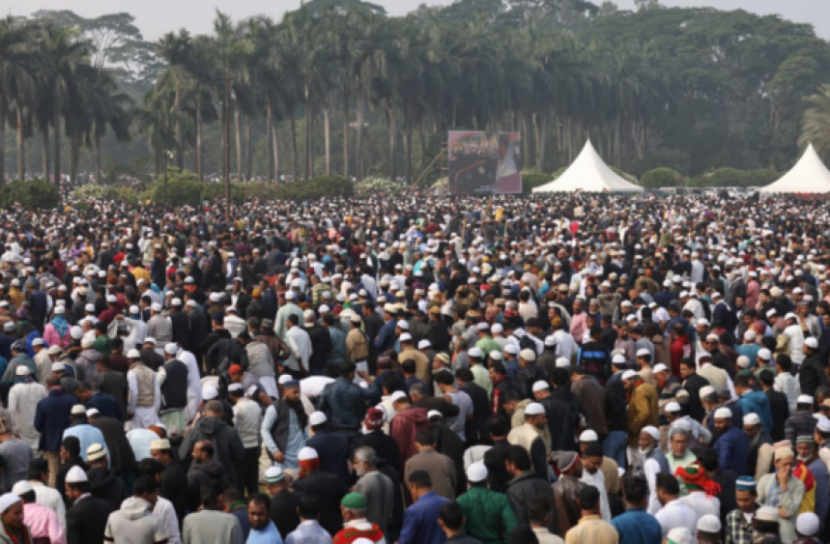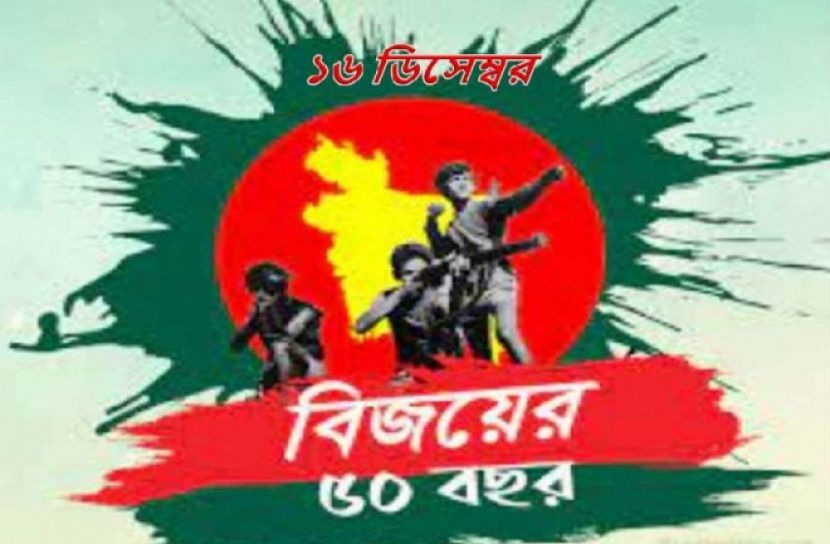
Inward remittance of the country shrinks by 23%

VC Niaz Ahmed Khan resigns

One dies while attending Janaza!

Bangladesh will not join ICC T20 World Cup in India

Md. Kamal Hossain: Today (December 16) is the day of great victory, an unforgettable day for the glorious achievement of the Bengali nation. On this day in 1971, at the historic Suhrawardy Udyan in Dhaka, about 91,634 members of the Pakistani army formally surrendered to the joint forces of Bangladesh and India. And the Pak army was expelled from this territory. Today is that great victory day. Today is the day of the red-green festival. 50th anniversary of the victory.
On the same day, General Amir Abdullah Khan Niazi signed the surrender document on behalf of Pakistan. He surrendered to the Joint Chiefs of Staff, General Jagjit Singh Aurora. Capt. Abdul Karim Khandaker, Deputy Commander-in-Chief of Bangladesh Liberation Army and Deputy Chief of Staff Group was present at the surrender ceremony.
The Bengali nation was freed from the curse of subjugation in exchange for the sacrifices of three million martyrs and the sacrifices of two lakh mothers and sisters in the long nine-month war led by Bangabandhu Sheikh Mujibur Rahman, the father of the nation and the elected government led by Awami League. A new state called Bangladesh emerged on the world map.
However, we did not achieve this victory in a single day. Earlier, in the 1970 elections, the Pakistanis tried to seize power by resorting to conspiracies without respecting the verdict of the people. The Pakistani ruling class, under the leadership of Bangabandhu Sheikh Mujibur Rahman, started procrastinating to hand over power to the victorious Awami League.
As a result, then East Pakistan became agitated. Bangabandhu's historic speech at the then Racecourse ground on March 7, 1971, 'This time the struggle, the struggle for liberation. This time the struggle, the struggle for freedom, strengthens the people's desire for freedom. When Dhaka is on fire, the Pakistani ruling clique chooses to suppress our desire for liberation.
Father of the Nation Bangabandhu Sheikh Mujibur Rahman declared the independence of Bangladesh in the early hours of March 26, 1971, when the Pak aggressors launched an indiscriminate genocide on the unarmed and innocent Bengali nation on the black night of March 25, 1971. He was arrested the same night and taken to West Pakistan. Brigadier Rahimuddin Khan's military court sentenced him to death but it was not carried out.
Meanwhile, the Bengali nation responded to Bangabandhu's call and jumped into armed struggle. About one crore Bengalis took refuge in India as refugees and another three crore people became internally displaced persons. The Mukti Bahini, comprising Bengali military, paramilitary and civilian citizens, proclaimed Bangladesh's declaration of independence from Chittagong.
The East Bengal Regiment and the East Pakistan Rifles were instrumental in building the initial resistance. To this end, on 10 April Bangabandhu Sheikh Mujibur Rahman was made President, Syed Nazrul Islam was made Vice President and Tajuddin Ahmed was made Prime Minister. On 11 April MAG Osmani was appointed as the Commander-in-Chief of the Mukti Bahini.
Later on 17 April, the temporary expatriate government of Bangladesh was sworn in at Mujibnagar. The declaration of independence of Bangladesh was read there. This Declaration was preceded by a proclamation on 10 April and was declared effective from 26 March 1971. Both the President and the Prime Minister addressed the function. In his speech, Prime Minister Tajuddin Ahmed described the context of Bangladesh's declaration of independence.
At the end of his speech, he said, "We have made our statement to the world that no other nation in the world can claim more recognition than us." Because no other nation has fought harder than us. Did not accept the further sacrifice. Joy Bangla.
After that, he started conducting liberation war from Calcutta. The headquarters of the Bangladesh Army was established at 6 Theater Road, Kolkata. Earlier, the headquarters started its activities on April 12. Lieutenant Colonel MA Robb and Group Captain AK Khandaker were appointed Chief of Staff and Deputy Chief of Staff respectively. Besides, Prime Minister Tajuddin Ahmed announced the names of three regional captains.
Among them Captain Nawazish became captain of Rangpur region, Major Nazmul Haque of Dinajpur-Rajshahi-Pabna region and Major MA Jalil of Barisal-Patuakhali region. Each region is identified as a sector. Later, at a conference of sector commanders held from 10 to 16 July, the whole of Bangladesh was divided into eleven sectors and different sub-sectors to facilitate the operation.
Following this, students, peasants, workers and political activists joined the Mukti Bahini and received training on war tactics, weapons and explosives, with an indomitable desire to liberate Bangladesh from the clutches of Pakistani troops. At the end of the training, they are engaged in fighting against the enemy in different sectors.
Apart from the Mukti Bahini, many other forces were organized inside Bangladesh in the war against the Pakistani army. Among these forces are Quader Bahini of Tangail, Latif Mirza Bahini of Sirajganj, Akbar Hossain Bahini of Jhenaidah, Hemayet Bahini of Faridpur, Quddus Mollah Bahini and Gafur Bahini of Barisal and Afsar Bahini and Aftab Bahini of Mymensingh.
All these forces are organized locally and fight against the occupying forces in their own strength. Proletarian Party leader Siraj Sikder organized his forces in Barisal. Another force, the Mujib Bahini, was formed with the active cooperation of Major General Oban, a guerrilla warfare expert in the Indian Army.
Members of Mujib Bahini were trained in Dehradun. Chhatra League leaders Sheikh Fazlul Haque Moni, Tofail Ahmed, Abdur Razzak and Sirajul Alam Khan were the organizers of this force. And the members of Mukti Bahini were divided into regular and irregular. Irregular forces were known as mass forces. Regular forces included soldiers from the East Bengal Regiment and the East Pakistan Rifles.
And after the initial training of students, peasants, workers and political activists, they were recruited into the people's army in different sectors. Members of the People's Army were sent to conduct guerrilla warfare against the enemy inside Bangladesh. Members of the regular forces were engaged in the traditional battles of the armed forces.
In July, the first brigade of regular forces, known as the Z Force, was formed. The brigade was named after the English initials 'Z' in the name of Major Ziaur Rahman, the commander of the brigade. The brigade consisted of 1st, 3rd and 8th East Bengal Regiments.
In October, the second regular brigade, known as 'Force', consisted of soldiers from the 2nd and 11th East Bengal Regiments. The commander of this brigade was KM Safiullah. Besides, members of 4th, 9th and 10th East Bengal formed 'K Force' under the captaincy of Khaled Musharraf.
On the other hand, Bangladesh Air Force was formed on 26 September in Dimapur, Nagaland. It was organized by Air Commodore AK Khandaker. The Bangladesh Air Force started its journey with Squadron Leader Sultan Mahmud, Flight Lieutenant Badrul Alam, Captain Khaleq, Sattar, Shahabuddin, Mukit, Akram, Sharfuddin and 7 Airmen. The force consisted of only a handful of Dakotas, Otter-type aircraft and elevated helicopters.
Similarly, the Bangladesh Navy is made up of navy personnel who have left the Pakistan Navy. The first navy 'Bangabandhu Navy' was inaugurated on 9 November 1971. It included only 6 small boats. The Bangladesh Armed Forces was well organized with regular brigades, sector troops and guerrilla forces, Bangladesh Air Force and Bangladesh Navy.
In addition, Bengali military, civilian and diplomatic figures sided with the Provisional Government of Bangladesh. During the war of liberation of Bangladesh, at the international level, the United States and the People's Republic of China gave strategic support to Pakistan by referring to this war as an internal matter of Pakistan. On the other hand, the common people of India, the Soviet Union and their allies, and the people of Japan and many countries in the West sided with Bangladesh.
Meanwhile, on 9 August 1971, the Indian government signed an alliance agreement with the Soviet Union to gain strategic advantage against the Sino-US-Pakistan axis. The signing of this agreement added a new dimension to the war of independence of Bangladesh.
On the other hand, cultural personalities secretly launched Swadhin Bangla Betar Kendra. The plight of the Bengali refugees in the war worried and terrified the world. The Prime Minister of India Indira Gandhi provided the necessary diplomatic, economic and military assistance to the Bangladeshi citizens.
Following this, some musicians from Britain, USA and India organized the world's first concert in New York to raise funds to help Bangladeshis. US Senator Ted Kennedy has launched a campaign in the US Congress against the killings by the Pakistani military. Archer Blood, the US ambassador to Dhaka, also opposed US President Richard Nixon's good relations with Pakistani dictator Yahya Khan.
In the midst of a fierce guerrilla attack, a joint command of the Mukti Bahini and the Indian forces was formed in November. Lieutenant General Jagjit Singh Aurora, Commander of the Indian Army's Eastern Command, was appointed Chief of the Joint Forces. However, after the bombardment of Amritsar, Srinagar and Kashmir Valley by the Pakistan Air Force on the evening of 3 December, the joint command of the Liberation Army and the Indian Army took an effective role.
And then the Indian armed forces were instructed to retaliate against the Pakistani army. As a result, another Indo-Pakistani war broke out on both the East and West fronts. The Pakistani army was cornered by a series of airstrikes and joint Bangladesh-India operations.
The Mukti Bahini and the Indian Army gradually advanced inside Bangladesh. As a result, defeat and surrender of Pakistani troops became inevitable. On the eve of Bangladesh's complete liberation from hostilities, a ceasefire was proposed in the UN Security Council. This attempt was thwarted when the Soviet Union vetoed it.
On 14 December the Indian troops and the freedom fighters of Sector 11 reached Tongi in Dhaka. On the morning of 16 December, they took up a position at Savar. Major General Jamshed, Commander of Pakistan Army's 38th Division, received Indian Commander Major General Nagra at the Mirpur Bridge near Dhaka city.
The Mukti Bahini and the Indian troops entered Dhaka at ten o'clock in the morning. Major General Jacob, Chief of Staff of the Indian Army's Eastern Command, landed at Dhaka Airport at noon with the draft documents of the surrender of the Pakistani forces. The defeated Pakistani captain Lieutenant General AAK Niazi gave a surrender gesture to Lieutenant General Aurora.
At 5:01 pm, at the Ramna Racecourse (now Suhrawardy Udyan), Lieutenant General Jagjit Singh Aurora on behalf of the Joint Command and Lieutenant General Niazi on behalf of the Eastern Command of the Pakistan Army signed the surrender document. Mukti Bahini was represented by Deputy Chief of Staff Group-Captain AK Khandaker.
The surrender document was as follows: General Officer Commanding-in-Chief of Indian and Bangladeshi forces on the eastern battlefield, Lieutenant-General Jagjit Singh Aurora agreed to surrender all Pakistani armed forces stationed in Bangladesh. The surrender will apply to all paramilitary and civilian armed forces, including Pakistan's army, navy and air force.
From wherever these forces are, they will regularly surrender and surrender to the nearest troops under the command of Lieutenant-General Jagjit Singh Aurora. With the signing of this document, the Eastern Military Command of Pakistan will be under the direction of Lieutenant-General Aurora.
Failure to comply with his instructions would be considered a breach of the conditions of surrender and action would be taken in accordance with the recognized laws and customs of war. If there is any doubt as to the meaning or interpretation of the terms of surrender, the decision of Lieutenant-General Jagjit Singh Aurora will be final.
Lieutenant-General Jagjit Singh Aurora is pledging to give the surrendering troops the dignity and respect they deserve under the rules of the Geneva Conventions and pledges security and benefits to the surrendering Pakistani military and paramilitary personnel. The forces under Lieutenant-General Jagjit Singh Aurora will also provide protection to foreign nationals, minorities and people of West Pakistani descent.
In the end, the goal of the united Bengalis in the Great War of Liberation was not only to drive out the occupying Pakistani forces and gain independence but also to establish a democratic state and a just society where all injustices of Pakistani rule would come to an end.
In addition, the state will be governed in a truly democratic manner by elected representatives through free, fair and impartial elections. And all citizens irrespective of race, religion and caste will enjoy equal political, economic, cultural and religious rights, rule of law will be established, that is, all laws will be equally applicable to all.
Victory Day on 16 December was celebrated as a national day in Bangladesh through a circular issued on 22 January 1972 and the day was officially declared a holiday. Victory Day is celebrated all over the country as a special day in Bangladesh.
On this day, people of all walks of life, including the President, Prime Minister, Leader of the Opposition, various social and cultural organizations, lay wreaths at the National Memorial in Savar, Dhaka, as part of paying homage to the martyrs of Bangladesh's War of Independence. In the same way, Victory Day is celebrated all over the country. Besides, Vijay Utsav is celebrated abroad on the initiative of local Bengalis including the Bangladesh Mission.
Newsletter
Subscribe to our newsletter and stay updated.


